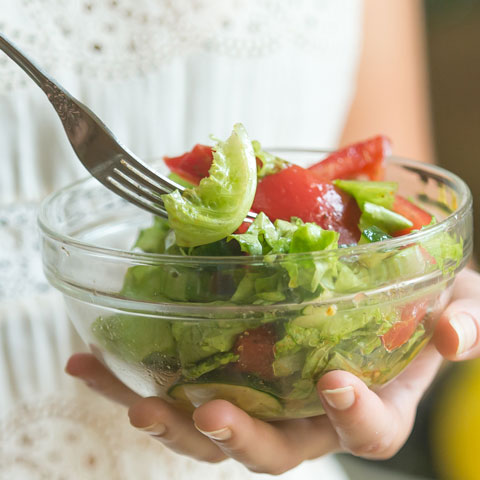Eating healthy and maintaining a healthy body weight go hand-in-hand. Most people are only conscious of their calorie count and tend to ignore the kind of calories we consume - which is just as important.
The nature of calories depends largely on the way in which our foods have been grown, processed (or not), and cooked. Understanding whether to choose processed or organic food, and how they impact our calorie intake, is crucial in the process of building a nutritious and effective diet plan.
What Are Processed Foods?
As the words suggest, processed foods are those that have been transformed from their original state due to man-made processes.

These processes could be as simple as grinding vegetables in a mixer/grinder to as complex as adding large amounts of chemicals or additives to the raw food. Additives like synthetic sugars, colours, and flavours are often the most commonly used ingredients of processed foods.
What Are Organic Foods?
Organic foods are those that are devoid of man-made fertilisers or chemicals and growth boosters. They are also free from synthetic additives like MSG and artificial colours.

Furthermore, organic farmers harness the power of the sun, earth, air, and water, to make this produce nutrient rich. Their processing is also devoid of chemicals, employing minimal heat and pressure, often cold or hand pressed, thus ensuring that their nutrients are preserved.
Difference in Calorie Quantity
Organic foods have higher nutrient dense calories - fewer energy (calories) and higher nutrients like vitamins, minerals and fibres.
Alternatively,
Processed foods usually have higher empty calories - these contain more energy (calories) and are essentially devoid of nutritional value. Excess consumption of these foods can lead to increase in weight and nutrition deficiencies.

Storage
Organic foods are mostly ground, stored, packaged, and processed without the use of heavy machinery or heat, they can maintain the nutrients and fibres. The high fibre and nutrition content of these raw foods keeps the body's metabolism active, thus allowing effective utilisation of the essential nutrients.
The absence of synthetic additives in the food lead to long term health benefits for the body. On the contrary,
Heavy processing of the food slows down metabolism, resulting in more calorie retention and risk of health issues when consumed over a long period of time.
Furthermore, the energy count and Omega-3 fat count is higher in organic foods when compared to those in processed foods. The excessive heat during processing endangers the existence of Omega-3, also known as a “healthy fat” or a building block for the body.
Difference in Calorie Quality
The type of processing also affects the calorie quality.
For instance, oils processed with high heat contain fatty calories and chemicals instead of nutrients which are destroyed by heat.
On the other hand, cold pressed processes, like those employed at Conscious Food, use significantly less heat and preserve the vitamins and natural antioxidants in the seeds, making the oil healthier.
Similarly for pulses like yellow lentils, pigeon pea, chickpeas, and other dals, organic production aids in retaining the fibres that aid digestion. Alternatively, processed pulses contain densely packed, but empty, calories that take more energy and time to digest, also reducing the metabolism.
At Conscious Food, the pulses, oils, wellness foods, and spices, are all organically produced and processed, ensuring the highest quality of products and nutrients for your table. Moreover, by choosing Conscious Food you are supporting local farmers and buying ECOCERT certified products.
The Conscious Food Blog is a storehouse of nutritional recipes, recommendations, and tips aimed at transforming your kitchen into a hotbed of wholesome warmth and wellness. Always be on the lookout for our next blog post on ways in which you can make your meals a tad bit more nourishing, more flavourful, and more real!
Written by Sakshi Agarwal (Weloquent)






